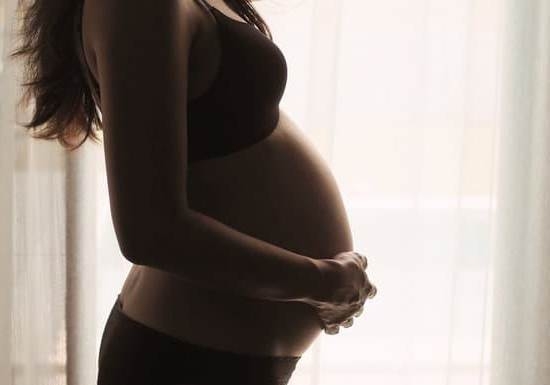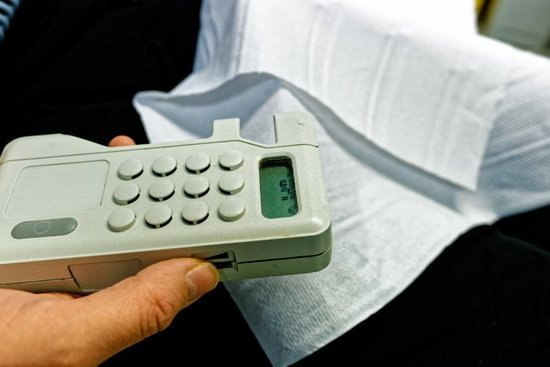Introduction
Pregnancy cramps are normal and a common symptom experienced by many women while they are pregnant. While these cramps can vary in severity, they generally involve sensations of pain or discomfort localized in the abdomen, lower back and legs. Fortunately, there are a few methods that can help to manage pregnancy cramps.
For women who experience mild abdominal cramping during their pregnancy, one of the best things to do is to stay hydrated by drinking plenty of water throughout the day and to engage in light stretches or exercises if possible. It may also be beneficial to take warm showers or baths as this can help relax the muscles and alleviate pain in some cases. In addition, massaging the affected area with essential oils such as lavender oil may ease pregnancy-related aches and pains.
In terms of more severe forms of cramping that cannot be relieved by at-home remedies, it is highly advised for pregnant women to immediately contact their physician for further evaluation and recommendations. Depending on the cause of their cramping, doctors may prescribe over-the-counter medications such as acetaminophen (Tylenol) for temporary relief or issue orders for further testing including an ultrasound scan if necessary. Proper diagnosis of any abnormal symptoms should always take precedence over at home treatments as it will determine what sort of medical intervention is required.
Types of Pregnancy Cramps and Potential Causes
Pregnancy cramps are common and normal for many women during their pregnancy. While they may be uncomfortable and even annoying, they usually don’t indicate a medical issue or health concern.
There are generally two types of pregnancy cramps: early pregnancy cramps, which tend to strike during the first trimester, and later pregnancy cramps, which are more common during the second and third trimester.
Early pregnancy cramps can be caused by hormone changes that your body is going through as it prepares for the baby. This type of cramping will typically occur around the time when you would normally have a period. It should not be severe or painful and should go away on its own after a few days.
In contrast, later pregnancy cramps are often related to physical demands placed on your body due to its changing shape as you carry the baby in your womb. The growing uterus is beginning to pressure muscle tissue and ligaments in this area, which can lead to pain in your lower abdomen or back region. You may also experience sharp stabbing pains or muscle spasms like Braxton-Hicks contractions as your body preps for labor. This kind of discomfort typically sets in during the fifth month of pregnancy or afterwards but will subside after birth.
Signs and Symptoms of Pregnancy Cramps
Pregnancy cramps are a normal occurrence and can be experienced at some stage during the first, second or third trimester. The cramping can range from a mild ache to a sharp pain usually felt in the lower abdomen or back. Other common signs and symptoms associated with pregnancy cramps include:
• Experiencing mild contractions in the abdominal area
• Sudden feeling of discomfort which may move up towards your belly button
• Aching and heavy sensation in the pelvic region
• Pain which may radiate through your hips, lower abdomen and lower back
• Tightening of the stomach muscles causing sharp pains in the uterus
• Dull period-like cramping while lying down or taking deep breaths
• Frequent urination or urgency to urinate as pressure is placed on your bladder
Home Remedies for Relieving Pregnancy Cramps
Pregnancy cramps are a common, normal occurrence for expecting moms. Many women may experience cramps during their first trimester as the hormones related to pregnancy and the uterus enlarging can cause some discomfort. Other causes for these cramps include general aches during your body’s adjustment to carrying a baby, constipation, gas pains, or even round ligament pain, which occurs when your ligaments stretch and become painful due to the baby’s growth in your belly. Although usually nothing more than uncomfortable, if you experience sharp pains that last longer than 12 hours you should consult with a doctor immediately.
Fortunately there are several home remedies and lifestyle modifications expectant mothers can use to soothe their discomfort. Some of these methods include drinking plenty of water to stay hydrated and reduce problems with gas or constipation, exercising regularly and gently stretching afterwards, lying on one side rather than on your back or stomach if possible, relaxing in warm compresses or baths, avoiding activities that require sitting for extended periods of time (especially those involving vigorous movements), wearing comfortable but not too loose clothing that does not put extra pressure on your abdomen area and eating regular nutritious meals throughout the day. Furthermore, massages can be used to relax tight muscles and ease any soreness you may have in areas like the back or legs. Lastly try practicing yoga exercises specifically designed to benefit pregnant women; it has been known to help relieve various kinds of aches caused by pregnancy.
Key Questions to Ask a Doctor About Pregnancy Cramps
– What causes cramps in my pregnancy?
– Are there any risk factors I should be aware of for experiencing cramps?
– Are there any treatments or remedies which may help alleviate the cramps?
– What types of conditions can cause severe pain that may require medical attention?
– Is it safe to take over-the-counter medication to reduce pain caused by pregnancy cramps?
– Are certain activities more likely to cause pregnancy cramps than others and should I avoid those activities?
– Is there anything else I should do to manage my pregnancy cramps?
When to Seek Professional Care for Pregnancy Cramps
Pregnancy cramps are typically normal and can be caused by the uterus expanding and ligaments stretching as the baby grows. These cramps are usually felt in the lower abdomen, pelvis, or even in the thighs and can range from a mild to severe ache. Keeping yourself hydrated, using a heating pad, doing light exercise, and focusing on your posture throughout pregnancy may help alleviate discomfort.
In addition to normal cramping during pregnancy it is important to seek professional medical advice if you experience any other symptoms or sudden changes in intensity with your cramps. If cramping is accompanied by any of the following symptoms you should definitely contact your healthcare provider: vaginal bleeding, abdominal pain or dizziness, back pain that changes position when lying down or exercising, bloating/nausea/vomiting lasting more than 24 hours, foul-smelling discharge, burning sensation during urination as well as sharp abdominal pains or muscle pains that last longer than two weeks. Additionally if regular menstrual-like cramps occur after week 20 of pregnancy; these could be an indication of preterm labor which requires immediate medical attention. It is also important for pregnant women who experience extreme fatigue or severe headaches at any point during their pregnancy to seek medical care. While many cases of pregnancy related issues may not require medical intervention; it is important for expectant mothers to remain aware of any changes occurring within their body and communicate promptly with their healthcare provider about signs of discomfort experienced so that further examination may take place if necessary.
Potential Complications of Pregnancy Cramps
Pregnancy cramps are typically thought of as normal and not a cause for concern. However, there are certain potential complications that can arise from pregnancy cramps. These include: preeclampsia, preterm labor, abnormal uterine bleeding, ectopic pregnancy, miscarriage, or placenta previa. Preeclampsia is an increase in blood pressure during pregnancy and can be dangerous if not managed. Preterm labor refers to when contractions occur before the 37th week of a woman’s pregnancy that result in the baby being born prematurely. This can lead to a number of health issues for the infant. Abnormal uterine bleeding can occur during pregnancy due to various causes such as infection or any other underlying medical conditions present in the mother such as fibroids or polyps. An ectopic pregnancy is when a fertilized egg implants itself outside of the uterus and can put both the mother and baby in danger. Miscarriage occurs when a fetus dies before completing 20 weeks of pregnancy and should be looked into by medical professionals in order to determine what caused it so that future pregnancies may not be impacted by similar issues. Lastly, placenta previa is a condition where an abnormally placed placenta covers all or part of the cervix, which could lead to excessively heavy bleeding during delivery if left untreated. It’s important for pregnant women to watch out for any signs that these complications may be occurring so they can stay safe and healthy throughout their pregnancy.
Conclusion
Pregnancy cramps are extremely normal and are experienced by many women around the world during the different stages of pregnancy. These cramps may range from mild to severe, and usually consist of sharp abdominal discomfort or aching in the lower back, abdomen, or even legs. Many women will also experience an increase in urinary frequency as a result of the growing uterus putting additional pressure on their bladder. This is to be expected and should not cause alarm. However, if any changes in intensity occur or the symptoms become worse then it is important to seek medical attention immediately. Pregnancy cramps can vary in severity and differ from woman to woman, with some experiencing mild cramping throughout the entire duration of their pregnancy while others may only have occasional episodes that come and go. Regardless, it is important for expecting mothers to stay informed about what types of pregnancy-related discomforts are considered normal so that they can take appropriate action if necessary.

Welcome to my fertility blog. This is a space where I will be sharing my experiences as I navigate through the world of fertility treatments, as well as provide information and resources about fertility and pregnancy.





